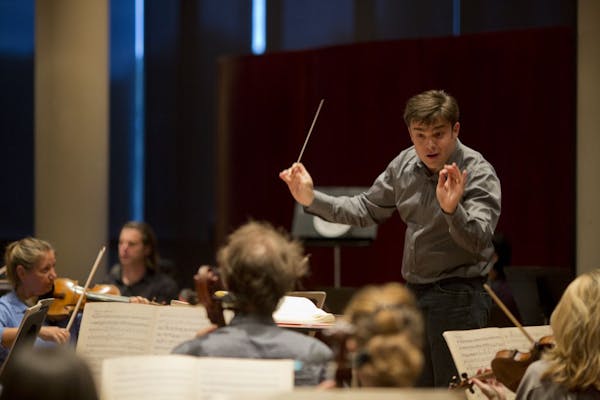In the history of Italian opera there are three periods: Before Verdi, After Verdi, and the long reign of the master himself -- a golden age that still nourishes the genre. Hence a work by Verdi (whose 200th birthday we'll toast in 2013) was a natural choice to launch the Minnesota Opera's 50th season, which opened Saturday.
But why "Nabucco," the composer's third opera, whose music -- leaving aside the achingly nostalgic chorus "Va, pensiero" -- often seems pedestrian? True, the work swept the Italian peninsula following its 1842 premiere at Milan's La Scala. Yet its popularity was less a matter of aesthetics than of politics; its tale of the exile and enslavement of the Jews by the Babylonian king Nebuchadnezzar (Nabucco) was read, rightly, as a censor-evading allegory of Italy under Austria's oppressive rule. Absent these irreproducible circumstances, "Nabucco" promises a longish evening of creaky melodrama. Or does it?
Enter American designer-director Thaddeus Strassberger, trained at La Scala, whose faith in "Nabucco" proves transformative. His production can hardly recapture the political resonances of the 1840's. But it makes us ponder them and the art-life nexus generally.
Wrapping "Nabucco" in a mini-play of his own devising -- a play set in occupied Milan in 1842 -- Strassberger succeeds in dramatizing the early reception of Verdi's opera, conjuring a bit of the tension that surrounded its initial performances. And if the conceit wears thin as the evening wears on, the director's opera-within-a-play culminates in an affecting postlude that even Verdi might have applauded (and that I won't spoil).
Strassberger's painted sets exude an old-fashioned beauty. Armed with a rich palette, costume designer Mattie Ullrich and lighting designer JAX Messenger help endow the stage with a 19th-century feel. One can almost smell the gaslight.
"Nabucco" requires two commanding low voices, and in John Relyea (Zaccaria) and Jason Howard (Nabucco) it has them. Relyea, in his company debut, pours out dark, prophet-like tone; he can sound both imperious and grandfatherly. Howard, especially moving in his "mad scene," marries plaintiveness to nobility of line.
But on opening night the laurels went to Brenda Harris, long a local favorite.She not only conquered the cruelly difficult, soprano-eating role of Abigaille but made the character more than a shrill monster. Her performance was at once a lesson in vocal stamina and Verdian style. Brava!
Victoria Vargas is a superb Fenena, John Robert Lindsey a vibrant Ismaele.
Conductor Michael Christie, in his first outing as the company's music director, revels in the score's raw energy, but his propulsiveness does not exclude refinement. The all-important chorus, prepared by Aaron Breid, is splendid from first to last.
Larry Fuchsberg writes regularly about music.

Minnesota Sports Hall of Fame: A class-by-class list of all members

This retired journalist changed professional wrestling from Mankato

